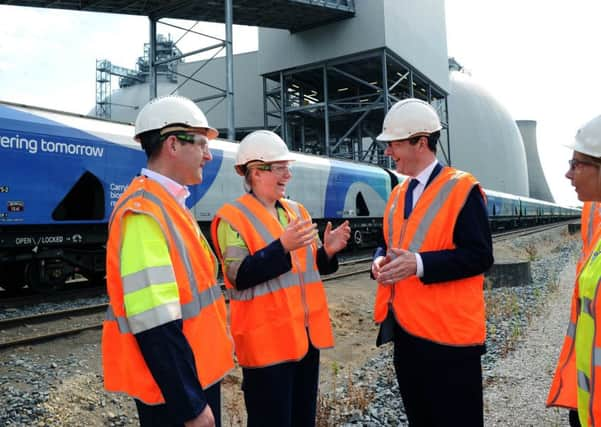YP Comment: Osborne: How to boost North. Time to heed back-seat driver


When Jake Berry, the newly-appointed Northern Powerhouse Minister, visits Leeds today, he won’t stand out in the crowd because he’s a low profile Tory MP whose previous claim to fame was managing Boris Johnson’s aborted Tory leadership contest a year ago.
The same cannot be said about the former Chancellor. Like it or not, he deserves credit for recognising the North’s untapped potential and he, more than most, knows how the Government works.
Advertisement
Hide AdAdvertisement
Hide AdWhen he says that this region needs to raise its game when submitting infrastructure schemes for approval, and cite how the wider economy will benefit from the investment of public funds, Yorkshire’s business and political leaders should take note of this back-seat driver.
When he says that the Government needs to look again at the funding formula that is used to calculate the cost-benefit analysis of transport schemes so the North does not keep losing out to London and the South East, Ministers should do likewise.
However, while Mr Osborne was speaking at the Siemens wind turbine plant in Hull which is a prima facie example of the benefits that can be accrued when public and private sector work strategically, two things need to happen to ensure that this catalyst for regeneration is not the exception. Not only does the aforementioned Mr Berry need to prove that his was not just a token appointment, but this area’s leaders need to decide how best to press this county’s case. And they can only do so by reconciling their differences on devolution before rival regions, and the Government, simply bypass Yorkshire.
Consensus call
IT’S IRONIC that Theresa May is now calling for cross-party consensus on the great issues facing the country when she is the Prime Minister who risked all with an unnecessary general election – and then spent six weeks rubbishing her opponents.
Advertisement
Hide AdAdvertisement
Hide AdShe’s only doing so, on the eve of her premiership’s first anniversary, because she’s totally at the mercy of others if she wants to lead a ‘bold’ government that is committed to making Brexit for all while tackling injustice across society.
Yet, while there are far-reaching issues like Brexit, social care and public sector pay that demand co-operation between the major parties if any tangible progress is to be made, Mrs May needs to show her willingness to work with, and accommodate, others.
Are rivals really going to risk their reputations after she lost the confidence of the country on June 8? And, more to the point, will the Tory party still support a Prime Minister when some of those close to David Davis, the Brexit Secretary, believe that she is “dead in the water” and has “lost her authority”?
Mrs May had a golden opportunity to be more collaborative and work across the political divide when she became PM. It’s what the country actually wanted last summer. If she had done so rather than relying upon the flawed judgement of those discredited policy aides who thought they were running the country, she might not have felt the need to call an election. If the Tory leader is serious about working with others, tomorrow’s policy speech will include a cross-party commission to handle Brexit. After all, the country’s future is, frankly, more important than a Prime Minister’s survival.
A MP’s tenacity
Advertisement
Hide AdAdvertisement
Hide AdDIANA jOHNSON, the Hull North MP, deserves great credit for championing victims of the contaminated blood scandal in the 1970s and 1980s that led to the deaths of around 2,400 people. Without her persistence, six opposition leaders would not be backing calls for a Hillsborough-style inquiry.
Yet, while the Government will be reluctant to hold a full public inquiry when it is having so much difficulty setting up the terms of reference for the probe into the Grenfell Tower tragedy, there’s no reason why Theresa May – a Prime Minister committed to fighting injustice – can’t sanction the orderly release of the relevant documents.
Those caught up in the scandal have a right to know, for example, whether medical details were tampered with to hide the cause of their infections. And, while these matters are historic and precede this Government, disclosure will demonstrate that Ministers are, for once, on the side of victims.